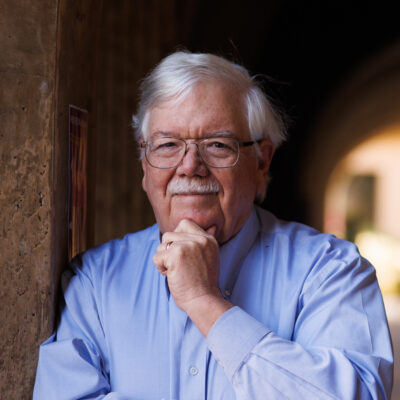Diving Into The Ethics Of The Technology Behind Designer Babies
Summary
The Huffington Post quotes Professor Hank Greely on how new technology in genetic deletion could affect scientific research.
Aldous Huxley’s Brave New World tells the story of a government that manipulates people’s genes to deepen the divides between social classes, creating a race of superhumans and a race of slaves. Today, a revolutionary technology called CRISPR-Cas9 has some scientists worrying that Huxley’s bleak vision isn’t so implausible, at least when it comes to having the necessary technology. CRISPR allows scientists to quickly and cheaply edit, delete or replace any gene in any plant or animal. Researchers have already used the method on an astonishing range of experiments, from engineering mosquitos to resist the parasite that causes malaria, to creating miniature pigs and stopping cancer cells from multiplying. In April, scientists in China announced they’d used CRISPR to edit the genes of human embryos. Naturally, fears about designer babies and eugenics were not far behind.
This week, hundreds of scientists convened in Washington, D.C., for a conference to talk about the ethics of editing the human genome, and to try to shape an international consensus on how the technology should and shouldn’t be used. Here, a selection of bioethicists share their thoughts on how we should move into the brave new world of CRISPR.
…
Henry Greely, professor of genetics and director of the Center for Law and the Biosciences at Stanford University: I see no real issues unless or until the cells are used to make babies or to treat people — basic research without putting things in people doesn’t raise any concerns for me in this context.
For making babies, the biggest issue to me is the safety of the baby. I think much more research would have to be done on those issues — probably at least a decade’s worth — before anyone could responsibly try to make babies this way — and only if the safety research had gone very well.
Beyond that, the issues of justice and access are important, but no more important with other issues, like access to good medical care.
I am not concerned about the issues of consent by the child (none of us gave consent to be conceived and born) or changing “the human germline genome,” which is an abstraction, not a sacred object.
…
Greely: For making babies, I think Food and Drug Administration-type review is essential. Some regulation beyond that, if it ever got past that safety and effectiveness stage, might be appropriate to limit off-label uses.
For nonhuman uses, we need more comprehensive and stronger regulation to make sure that environmental release of genome edited organisms only happens after careful review. That will also require other ancillary regulations, such as a registration requirement for people and labs trying to do the work.
…
Greely: The courts could decide the FDA doesn’t have authority, but I think that’s unlikely. Off-label limits would probably (maybe not certainly) require new legislation, always a potential roadblock.
On nonhuman, I am afraid that new federal legislation would be required. Getting good legislation passed is always a potential roadblock, even in a more normal political setting.
That’s just in the U.S. Doing anything both universal and fully effective across the world is nearly impossible, but we should try to build an international consensus on the non-human issues. On the human, different countries may go different ways.
Read More
